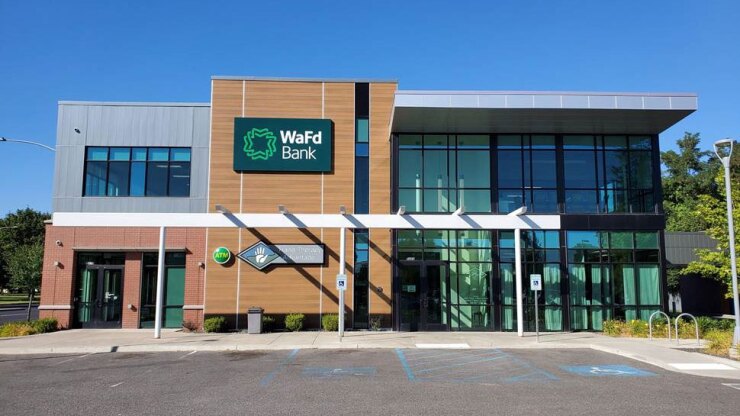
After
The $22.6 billion-asset WaFd Inc. — the parent of Washington Federal Bank, which does business as WaFd Bank — said in a press release late Tuesday that it secured green lights from the Federal Deposit Insurance Corp., the Board of Governors of the Federal Reserve System and the Washington State Department of Financial Institutions to buy out Santa Rosa, California-based Luther.
The companies' respective shareholders approved the deal last year.
"We're grateful to be over the finish line," WaFd CEO Brent Beardall said Wednesday in an interview. "There's a lot that is moving in bank regulation. [Regulators] took time to ensure this benefited everyone."
The transaction, valued at
Events in the past year, including the crypto-induced banking crisis that led to the liquidation of one prominent California bank and the failure of two others, strengthened his confidence in the deal's potential, Beardall said.
"I'm incredibly excited in terms of the environment," Beardall said. After 2023, when "two phenomenal banks failed [Silicon Valley Bank and First Republic Bank] and were taken over by megabanks, the opportunity is there to take market share."
When the delays were disclosed, WaFd did not cite specific reasons, but regulatory hurdles had yet to be cleared at those points in the process.
More than 50 advocacy groups, including housing activist organizations in California,
Bankers and analysts said increased regulatory scrutiny of M&A — under
A spike in interest rates and recession worries further complicated matters. In all, these factors discouraged deal talks and
What's more, in the case of WaFd, Beardall suffered broken bones in a
Mitch Berlin, Ernst & Young's Americas vice chair of strategy and transactions, said in a report that M&A proved sluggish across most industries last year. But, as is the case for banks, the pursuit of scale could fuel a recovery this year.
Total corporate U.S. M&A deal volume in 2024 is expected to rise 12% after falling by 9% last year, according to EY. Yet headwinds persist. These include global unrest, including the Israel-Hamas and Russia-Ukraine wars, continued high interest rates intended to tamp down inflation and the potential for domestic political changes following a presidential election.
"Our perma-crisis of geopolitical volatility, slower consumer spending, and the impact of disinflation could all pull the punchbowl from the party — to say nothing of what promises to be a fiercely contested U.S. election," Berlin said.
WaFd made some progress toward integration while it was waiting, most notably hiring former Rabobank CEO Mark Borrecco as California regional president. Borrecco served as CEO of Netherlands-based Rabobank's U.S. banking subsidiary, headquartered in Roseville, California, from 2015 to 2019, when the unit was
The WaFd-Luther combination would create an institution with more than $30 billion of assets and more than 200 branches in nine states, mostly in the Western U.S. The deal would give WaFd entry to California, the nation's most populous state.
The post-merger conversion was scheduled last year, with an earlier closing date in mind. Now, "it may set a record," for quickest system changeover, Beardall said. "It's an incredible challenge but I think the team is up for it."
The $8.2 billion-asset Luther Burbank operates 10 branches and several loan production offices throughout California. At the close of 2023, it had total loans of $6.8 billion and deposits of $5.8 billion.
"We believe we have found a long-term partner in WaFd whose values align with ours, can offer our customers a wider range of technology-enabled financial solutions and expanded geographic footprint that will help our customers thrive," Simone Lagomarsino, president and CEO of Luther, said in the release.
— John Reosti contributed reporting.





